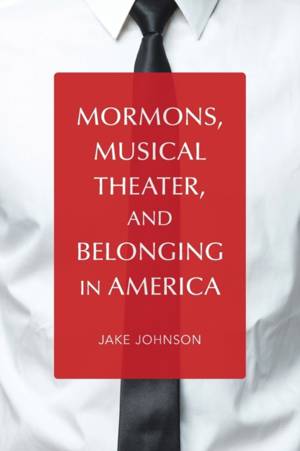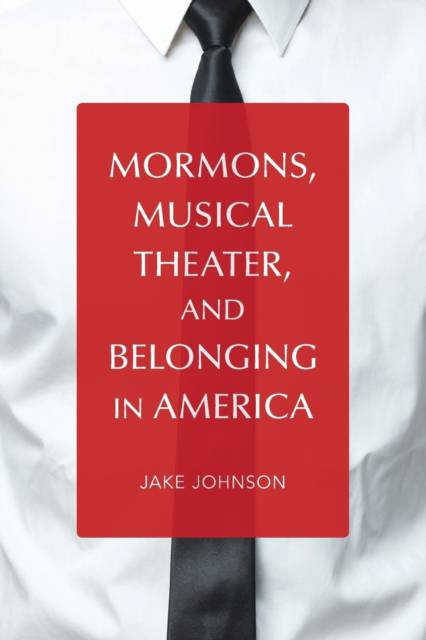
- Afhalen na 1 uur in een winkel met voorraad
- Gratis thuislevering in België vanaf € 30
- Ruim aanbod met 7 miljoen producten
- Afhalen na 1 uur in een winkel met voorraad
- Gratis thuislevering in België vanaf € 30
- Ruim aanbod met 7 miljoen producten
Zoeken
Omschrijving
The Church of Jesus Christ of Latter-day Saints adopted the vocal and theatrical traditions of American musical theater as important theological tenets. As Church membership grew, leaders saw how the genre could help define the faith and wove musical theater into many aspects of Mormon life. Jake Johnson merges the study of belonging in America with scholarship on voice and popular music to explore the surprising yet profound link between two quintessentially American institutions. Throughout the twentieth and twenty-first centuries, Mormons gravitated toward musicals as a common platform for transmitting political and theological ideas. Johnson sees Mormons using musical theater as a medium for theology of voice--a religious practice that suggests how vicariously voicing another person can bring one closer to godliness. This sounding, Johnson suggests, created new opportunities for living. Voice and the musical theater tradition provided a site for Mormons to negotiate their way into middle-class respectability. At the same time, musical theater became a unique expressive tool of Mormon culture.
Specificaties
Betrokkenen
- Auteur(s):
- Uitgeverij:
Inhoud
- Aantal bladzijden:
- 222
- Taal:
- Engels
- Reeks:
Eigenschappen
- Productcode (EAN):
- 9780252084331
- Verschijningsdatum:
- 30/06/2019
- Uitvoering:
- Paperback
- Formaat:
- Trade paperback (VS)
- Afmetingen:
- 150 mm x 226 mm
- Gewicht:
- 317 g

Alleen bij Standaard Boekhandel
+ 58 punten op je klantenkaart van Standaard Boekhandel
Beoordelingen
We publiceren alleen reviews die voldoen aan de voorwaarden voor reviews. Bekijk onze voorwaarden voor reviews.








